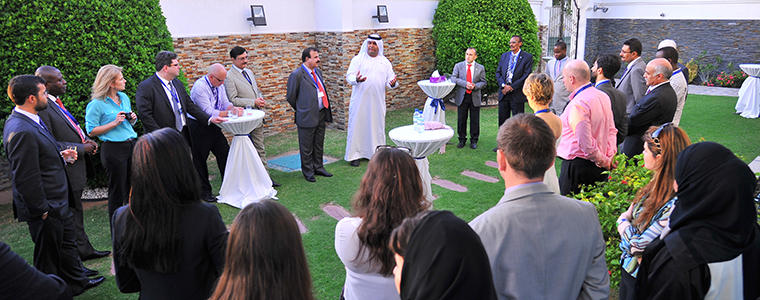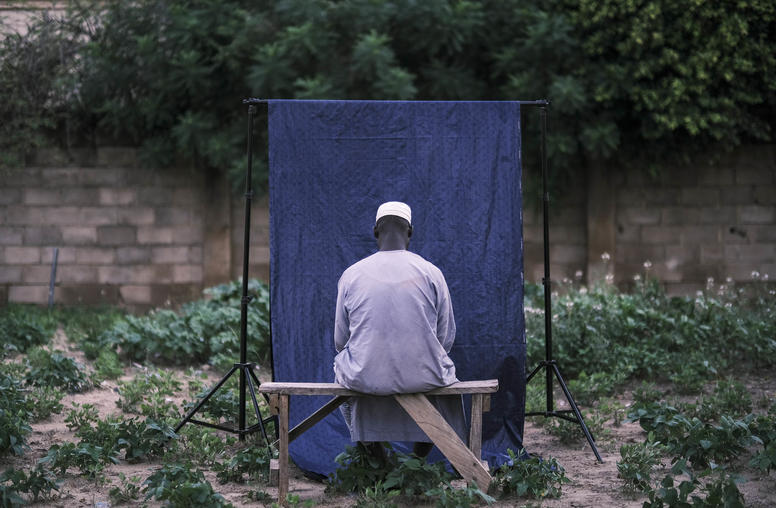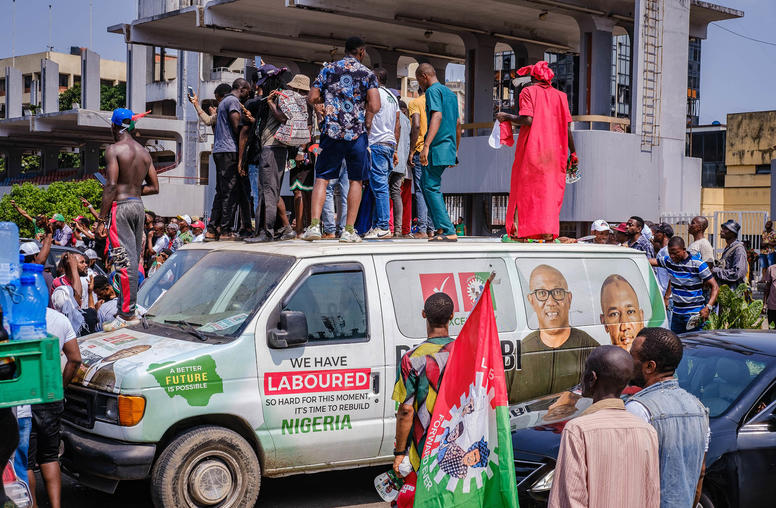From Northern Ireland to Somalia to Pakistan, police leaders and ministry officials attending a series of courses that USIP co-hosted on community policing expressed surprise that they faced common challenges -- from the threat of violent extremism and from the complexities of their own organizations.

USIP conducted the three-workshop series April 13-17 in Abu Dhabi with Hedayah, the International Center of Excellence for Countering Violent Extremism (CVE), which conducts training, dialogue, collaboration and research on the topic. The workshops with USIP led seven teams of police leaders and ministry officials from Nigeria, Jordan, Tunisia, Somalia, Morocco, Pakistan and Northern Ireland in developing national strategies to strengthen or, in some cases, establish an ethos of community policing. Community policing combines security with service to the population. Using the approach to counter extremist violence is based on the premise that police can benefit from closer connections with residents, who often are in a better position to recognize signs that individuals are at risk of being radicalized, either because of grievances or based on some ideological, religious, social, political or other interest.
The Organization for Security and Cooperation in Europe made partnerships between police and their publics, or community policing, a thematic priority in July 2012, according to a guidebook published earlier this year that was reviewed by experts including Georgia Holmer, a senior program officer in USIP’s Center for Gender and Peacebuilding.
Of course, the police force is not the only organization that can partner with communities, and in some cases, they are not the appropriate partners. But they are an important part of the government that can help prevent people from becoming radicalized to the extent of committing violent acts. In addition, as one “face” of the government, they have an important role to play in increasing public confidence in the authorities, especially because grievances with the police can serve as a justification for the use of violence. Thus, police services that are community-oriented and embody a sincere ethos of service are more likely to prevent crime and counter violent extremism.
USIP’s Academy for International Conflict Management and Peacebuilding developed a curriculum in policing and countering violent extremism (CVE) to help senior police leaders develop strategies to enact and institutionalize reforms in their countries. The April workshops were part of a program that began in 2012 with a group of policing and CVE experts who gathered to identify the key components of the curriculum, which would be delivered at Hedayah. The first series of workshops was held in Abu Dhabi in June 2013 for teams from Japan, Saudi Arabia, Pakistan, Afghanistan, Morocco, Jordan, Nigeria and Australia as well as one representing the European Union and the Netherlands.
In the latest workshops, the trainers consisted of USIP Senior Program Officer Nadia Gerspacher, Senior Program Assistant Nate Wilson, and two outside experts, Jeremy Pam and Daniel Waddington. They facilitated sessions on “Institutionalizing Community Policing for CVE: From Policy to Practice;” “Assessing Police Capacity for Community Policing to Counter Violent Extremism;” and “Leveraging International Police Cooperation Organizations for CVE.”
As the sessions proceeded, participants expressed a growing awareness of the common issues they face in their respective countries: the threats they face from violent extremism, as well as the challenges of establishing lasting community policing reforms in their organizations. The latter was a key reason that the program was structured to bring in, whenever possible, country teams of leaders who could support each other’s efforts when they return to home base. The mix of countries involved in the courses also broadened participants’ conceptions of possible reforms and the community policing ethos in different contexts.
One participant in the April workshops, a top police official for his country, had been skeptical about the value of community policing before the sessions. But the experience “has changed my thinking,” he told instructors. He said he would use the presentation his country team crafted in class “to actively try to convince political leaders and chiefs of police to reform.” Another participant said the sessions propelled a shift for that country team from an initial plan of conducting test cases of community policing in certain districts to instead recommending that such an ethos be adopted at the national level.
“The seminar not only gave me a chance to learn from much more experienced individuals and established institutions, [but] I also managed to produce a practical short-term strategy,” the participant said.
The next phase of the program will take the USIP training team to police academies in the same countries that participated in the workshops, to help them strengthen their community policing curriculum.
Nathaniel “Nate” L. Wilson is a senior program assistant in USIP’s Academy for International Conflict Management and Peacebuilding.



